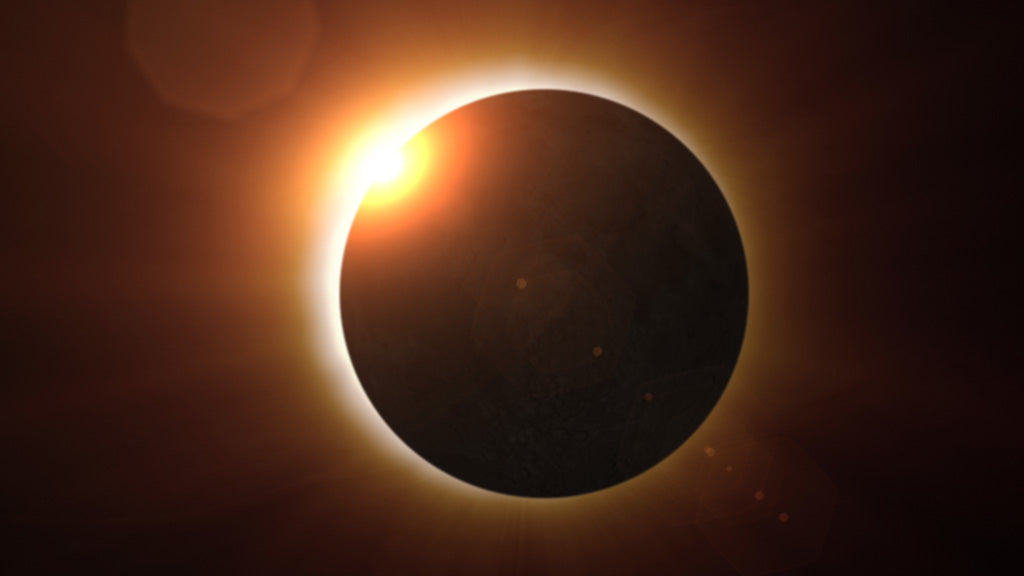
Total Solar Eclipse April 8, 2024
A rare opportunity to acoustically monitor changes to bird vocalizations using Haikubox
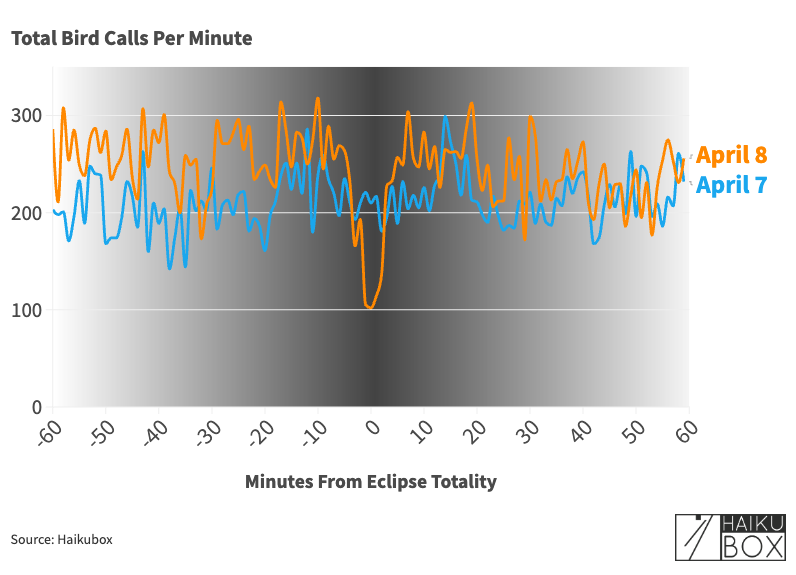
Preliminary Finding
April 8, 2024: Nearly 100 Haikuboxes were located within the eclipse's path of totality. An initial look at data from these Haikuboxes shows that bird vocalizations plunged during the darkest few minutes of the eclipse.
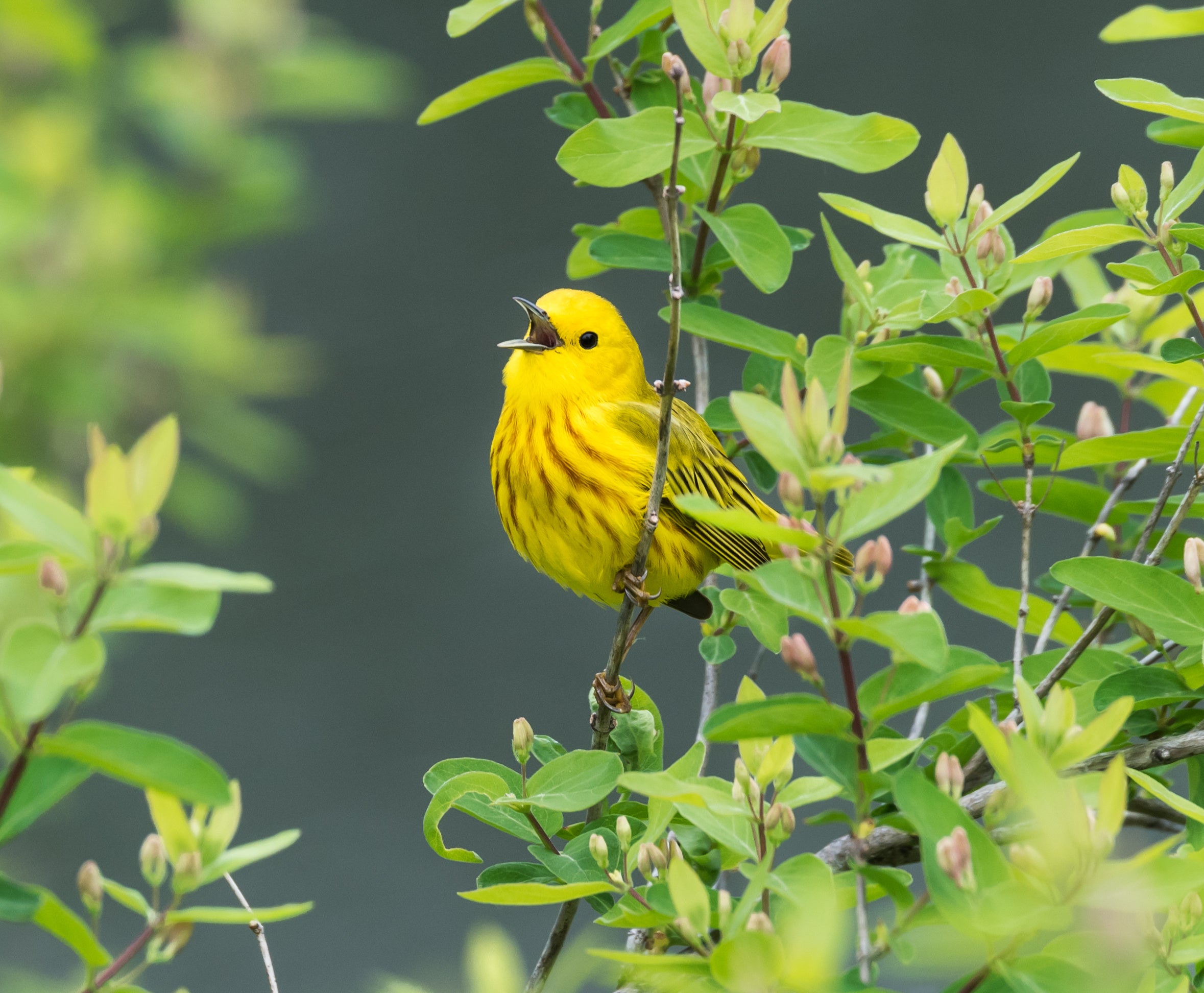
The Haikubox Research Plan
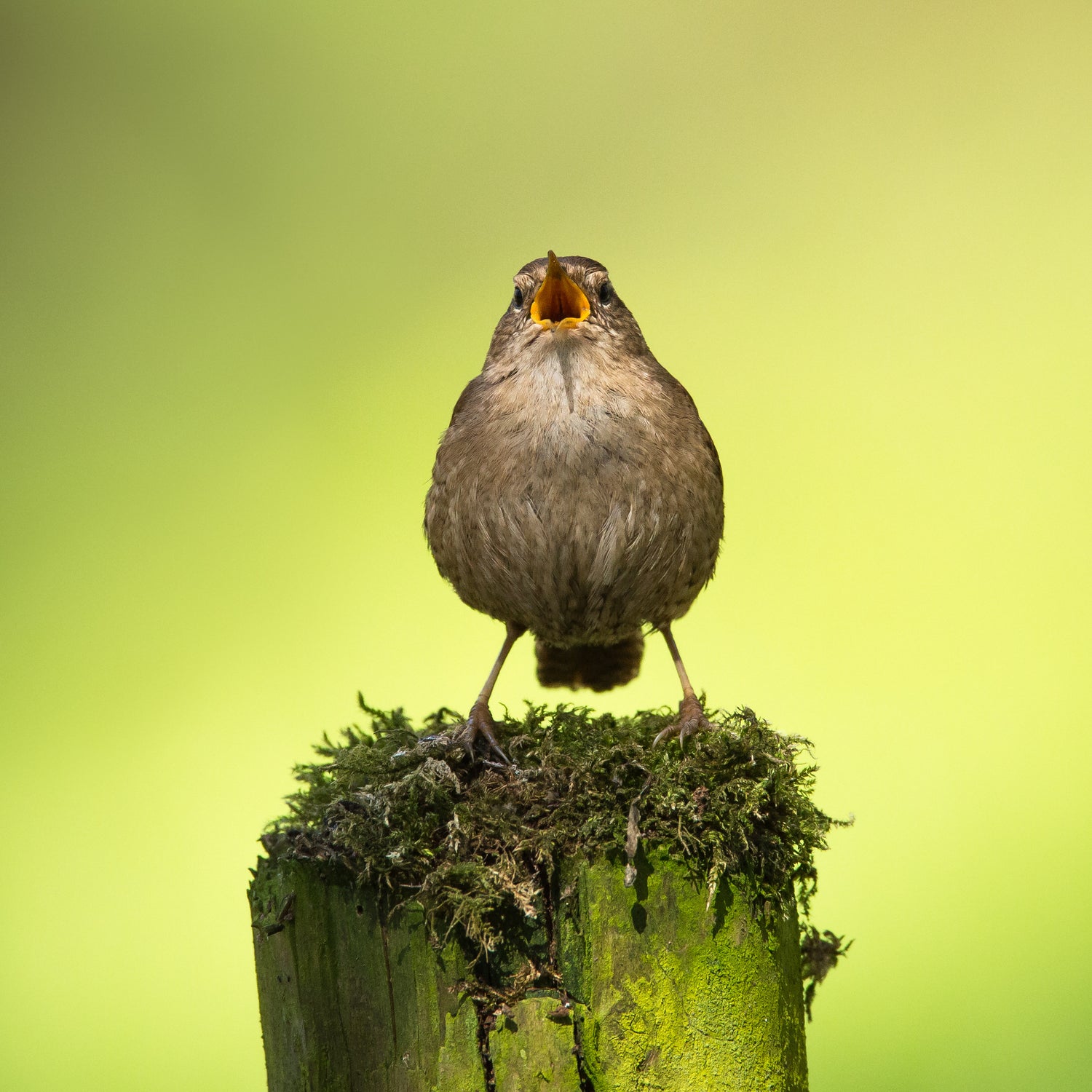
All community scientists and bird lovers can contribute to a better understanding of how birds react to a rare total solar eclipse through a research project planned by the scientists at Haikubox. The team plans to use acoustic data collected by Haikuboxes across North America to see, in real-time, whether the birds go quiet during this extremely unusual event.
Passive Acoustic Monitoring (PAM) has become widely used to understand animal biodiversity and behavior without the need for in-person observers. PAM devices are deployed, left to record, and later collected for off-site analysis.
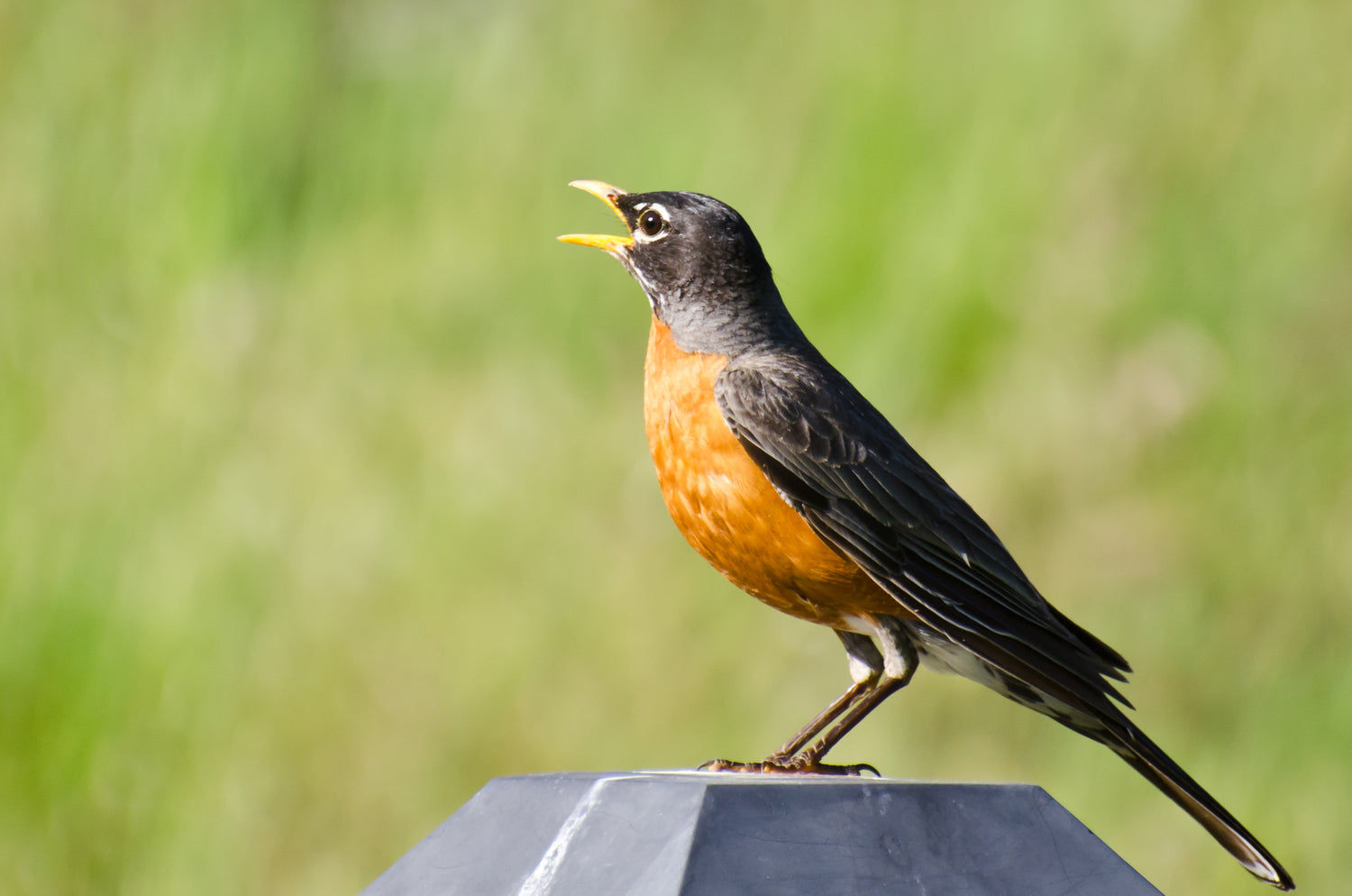
This Haikubox study is unique because it offers both a quick snapshot and longer-term deeper analysis of birds' vocalization behaviors before, during and after the eclipse. And it's a community science project because all Haikuboxes owned by consumers across North America will participate.
Past research on total solar eclipses showed that birds react to the darkness, so the Haikubox team is excited about how birds' vocalizations will be impacted by the eclipse.
We plan to collaborate with scientists at the K. Lisa Yang Center for Conservation Bioacoustics at the Cornell Lab of Ornithology should this work result in a manuscript for a peer-reviewed journal.
All North American Haikuboxes will automatically participate in this study!*
Important note to Haikubox owners: Please keep voices/conversations away from your Haikubox so it can do the important work of recording your birds' behavior before, during, and after the eclipse.
*Be sure data sharing is turned on in Settings.
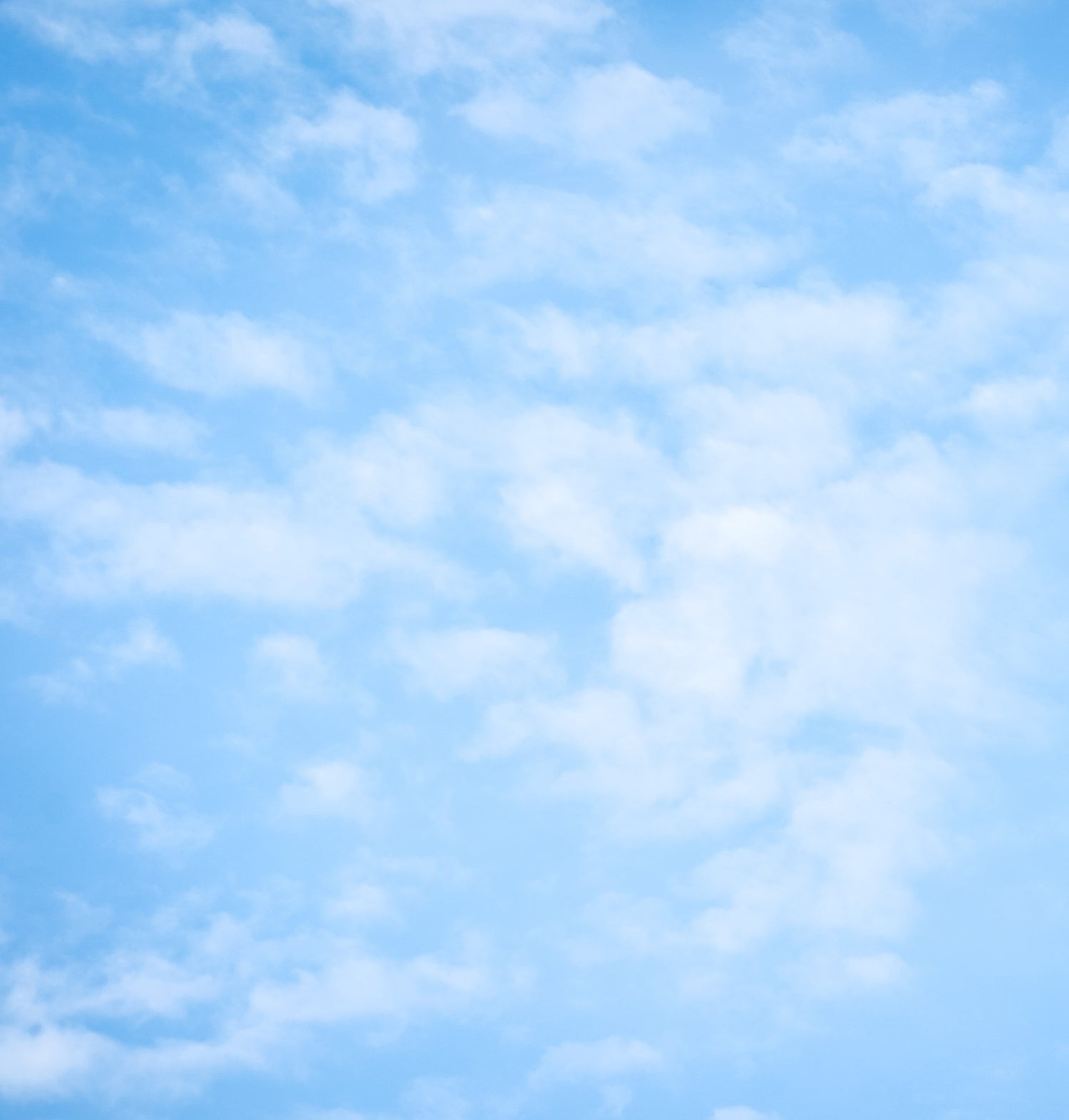
Research Questions:
- Did the onset of darkness increase or decrease the bird vocalization activity?
- When the sun reappeared, was there an increase in bird vocalization activity? Was it simply a resumption of normal vocalizations at that time of day, or did it appear to be more intense like a dawn chorus?
- Did the eclipse impact the dusk chorus that evening?
- Were there differences between locations with 100% obscuration and those with less obscuration?
- Did individual bird species react differently to the total eclipse?
Are there other research questions we should consider? Click the button below to let us know!
